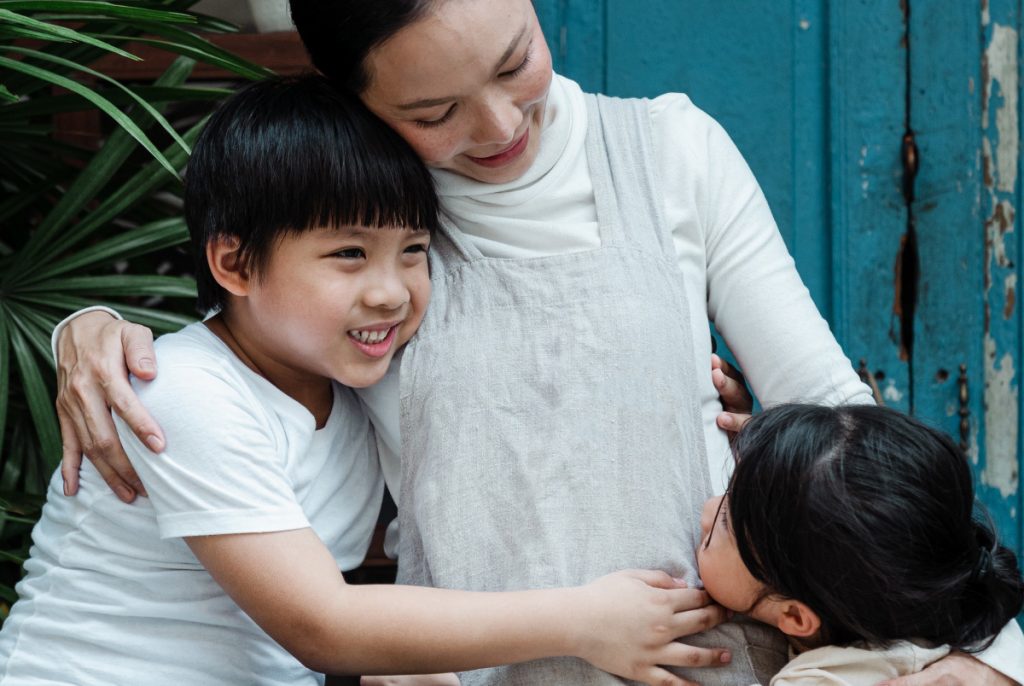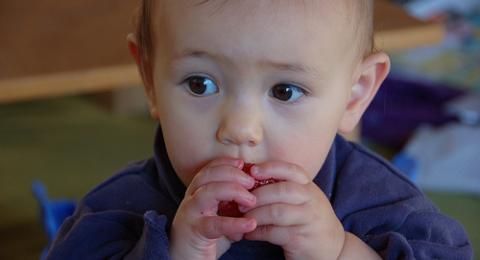In a study that is the first of its kind, researchers observing real-world parent-child interactions have shown the lasting effect of parents’ praise on their children’s behaviours and thoughts.
Psychology researchers have previously shown in laboratory experiments, that praising children’s effort and actions is connected to them having a more positive approach to challenges and failure, and having more determination to improve. In other words, focusing on a child’s effort can improve their motivational style or framework. Praising of a child’s effort and actions is commonly called “process praise”.
Another type of praise, known as “person praise”, is focused on the child themselves, for example “You are so great”. Over-use of person praise has been connected to children believing that the source of their successes and accomplishments is their fixed personal traits (e.g. their IQ or their long limbs). Children who mainly receive person praise tend to have a more helpless approach to setbacks – for example, when they fail, they might assume it was due to an innate lack of intelligence that ciould not have been overcome by more effort.
By observing parents and children in the home environment in typical daily activities and then following up several years later, this study has added to the research supporting the importance and lasting effect of process praise for children. Researchers at the University of Chicago and Stanford University followed up children aged 7 to 8 who they had observed as toddlers aged 1 to 3, and found that their parents’ earlier praise styles had significantly influenced their children’s later motivational styles.
Parents’ Praise Style Impacts on Children’s Attitudes to Challenges
There were three main findings of this research:
- Toddlers who were often process-praised by their parents were more likely at ages 7 and 8 to have a positive approach to challenges, could think of more strategies to solve problems or setbacks and believed they could improve their results with more effort. Toddlers who had received more person praise such as “Good girl” , “You’re so smart” and “You’re good at that “ were much less likely to have the perseverance and positive self-belief of peers who received more process praise.
- There was a much higher tendency for process praise to be given to boys than girls; examples of praise given more often to boys included “good job trying to put that back in”, “I like how you covered your mouth” and “great catch”. As a result, at ages 7 and 8, boys were more likely than girls to have positive attitudes about academic challenges and were more likely to believe that intelligence could be improved.
- Surprisingly, parents who believed in the possibility of improvement through effort, and who believed that ability was malleable, did not use process praise any more often than parents who thought people’s ability and capacity for change was fixed. In other words, just because a parent believes effort can lead to success and change, does not mean he or she will automatically or intuitively use a process praise style with their child.
The Best Way to Praise a Child
It comes from love and care when a parent says to a young child, “Good girl!”, “Clever boy!”. And the younger a child is, the more likely it is that a parent will simplify praise to a level that they think their child will understand. If there’s a tendency to process praise boys more often than girls, then this is undoubtedly a product of socialisation and childhood experiences. The benefit of research like this real-world praise study is that it can raise parents’ awareness of alternative, supportive forms of communication.
Temperament and other environmental factors will also contribute to how a child approaches challenging tasks and problem-solving. However, all children can benefit if their parents are aware of the lasting effects of using process praise and encouragement from a very young age. As pointed out by Dr Elizabeth Gunderson, lead author of this praise study:
“…improving the quality of parents’ praise in the toddler years may help children develop the belief that people can change and that challenging tasks provide opportunities to learn.”
Parents of girls may have to be especially self-aware to notice whether their praise style is more focused on their daughters’ innate abilities or on their effort and actions.
Following are some examples of process praise and person praise scenarios to illustrate the different approaches to praising a child:
Three year old Juliette is playing with her friends and throws a ball further and straighter each day – you are so impressed with her cleverness, speed and hand-eye coordination:
Person Praise: “You are such a good thrower Juliette, well done!”
Process Praise: “Look at you Juliette, you have practised throwing that ball all week and now you are throwing it with such a strong arm, nice shot!”
One year old Paul did not throw any of his dinner off the high chair table tonight – it was the first time in weeks.
Person Praise: “Good boy! No food on the floor Yippee!.”
Process Praise: “You are eating so nicely, Paul, I like that.”
Three Year Old Sophie drew a great picture of her brother. It’s one of the best she has done.
Person Praise: “You are so good at drawing, well done Sophie”
Process Praise: “You drew that picture so carefully. I love the hair and the big smile. That’s a lovely drawing.”
So go ahead, with a little self-awareness, you can give more process praise to your daughters and sons, and enjoy seeing their resilience and determination grow.







Leave a Reply